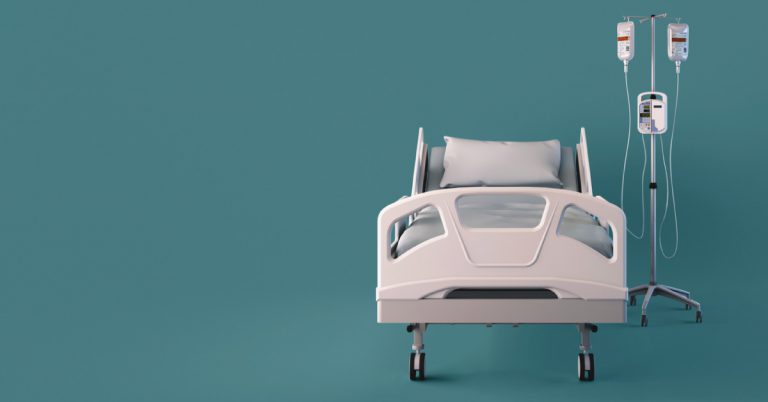For those living busy, active lives, staying in the hospital is the last thing we want to do. Unfortunately, if we are living active and full lives, we’ll definitely come into contact with new people and new activities, exposing ourselves to unexpected risks that have the potential to land us in the hospital.
It doesn’t mean that we stop living out our best selves. It just means we should keep an eye out for some of the things that we’re going to talk about in this article.
Understanding the most common reasons for hospitalisation
Let’s start by looking at the top 10 reasons for hospitalisation in Singapore. Some of the items on this list are expected. However, a healthy diet, regular exercise and sufficient rest will help most of us to dodge the worst of these.
Cancer, heart disease, diabetes and cerebrovascular diseases all fall under this “Avoidable” category. But there are some surprising causes for hospitalisation, like…
Surprising Culprits: Gallbladders, Biliary Tracts and the Pancreas
First of all: What is a gallbladder responsible for, and is it even important? This small organ is important because it helps store bile, which is used in the digestive process to breakdown fat. Unfortunately, this same organ can cause us agony if it gets blocked up by gallstones. This is considered a medical emergency, and happens rather often.
Don’t worry if you’ve never heard of biliary tracts, because we’ve never heard of it until we started working on this article, either. These tracts refer to a system of small ducts that move bile from the liver to the gallbladder, and then to the small intestine. An obstruction, or infection of any part of this tract tends to cause serious discomfort, and can land a person in the hospital quite quickly.
Unlike the biliary tracts, the pancreas is better known as the organ that deals with blood sugar and produces digestive enzymes to break down nutrients for better absorption. The prominence of this organ also means that if an acute infection of the organ occurs, things become life-threatening very quickly. This is known as pancreatitis, and causes severe symptoms like vomiting and severe pain in the midsection. Surgery is often required for intervention, especially if there is an abscess or if necrosis has set in.
The Silent Epidemic: Cancer
It’s often hidden from our view, but we should all be aware of the startling fact that 1 in 4 people in Singapore may develop cancer in their lifetime. With about 16 people dying from this silent killer every day, cancer can certainly take people by surprise.
While eating healthily and being active does seem to help stave off certain cancers, not every factor lies within our control. No one knows exactly when or how their cells will go rogue on them. The silver lining is that advanced medical technology has enabled earlier detection, increasing survival rates for most cancer types. This is why being protected by good cancer insurance is valuable: It provides coverage for all stages of cancer, including early stage cancer which critical illness insurance or riders may not cover for.
Unseen Danger: Diseases of Affluence that Singaporeans Can Overlook
Cerebrovascular diseases may sound alien to most, but the word “stroke” gets a lot more traction in our minds. The debilitating condition is, unfortunately, the 4th most common cause of death in Singapore, with incidence rates rising along with affluent albeit stressful lifestyles. What’s worse, less than half of all Singaporeans are able to identify a stroke symptom or stroke risk factor.
Diabetes is another disease of affluence that is striking Singaporeans hard, with 1 million people expected to be affected by this disease when we reach 2050. While diabetes itself will not put a person in hospital, poorly controlled diabetes can result in complications like heart attacks, stroke or kidney failure.
Top Hospitalisation Causes: Accidents, Poisoning, and Violence
The word “accident” conjures up images of car crashes and falls, and they would not be out of place in landing people in the hospital. However, this is not the only kind of accident that causes bodily harm. Burns, accidental choking, sports injuries, and even pedestrian collisions be considered accidental in nature.
Also not entirely within our locus of control is poisoning. Any exposure to harmful substances which could be ingested, inhaled, injected, or absorbed through the skin is considered poisoning. A prime example of accidental poisoning would be children accidentally drinking detergent. KKH sees thousands of such poisoning cases a year, with children eating mothballs and silica gel packs, among other things. Intentional poisonings, while less common, can come in the form of suicide attempts using household items, or over the counter drugs like paracetamol.
While Singapore is known for its low crime rate, violent crimes continue to surface. Incidents of family violence have been on the rise since 2020, while at least 10% of women here experience physical violence by a male. With all that in mind, it is no surprise that violence is a top reason for ending up in the hospital.
Though there are many things we cannot control in life, we definitely can do our part in making sure we are properly covered with personal accident insurance.
Protecting against the unexpected
No one likes to be taken by surprise, but it helps to have the necessary protection to deal with life’s adversities. That’s why Tiq 3 Plus Critical Illness can be useful in protecting your loved ones and you. With highly affordable plans that start at 24 cents a day for quick coverage with little fuss. Coverage is offered in $1000 increments, starting from $30,000 all the way up to $300,000. Tiq 3 Plus Critical Illness also has a 20% payout of the sum insured upon diagnosis of Diabetic Complications or Severe Rheumatoid Arthritis (SRA), to help you deal with unexpected diseases of affluence.
[End]
Information is accurate as at 5 June 2023. This policy is underwritten by Etiqa Insurance Pte. Ltd. (Company Reg. No. 201331905K. Protected up to specified limits by SDIC. You should seek advice from a financial adviser before deciding to purchase the policy. If you choose not to seek advice, you should consider if the policy is suitable for you. As this product has no savings or investment feature, there is no cash value if the policy ends or if the policy is terminated prematurely. It is usually detrimental to replace an existing policy with a new one. A penalty may be imposed for early termination and the new plan may cost more or have less benefit at the same cost. This advertisement has not been reviewed by the Monetary Authority of Singapore.
Tiq by Etiqa Insurance Pte. Ltd.
A digital insurance channel that embraces changes to provide simple and convenient protection, Tiq’s mission is to make insurance transparent and accessible, inspiring you today to be prepared for life’s surprises and inevitabilities, while empowering you to “Live Unlimited” and take control of your tomorrow.
With a shared vision to change the paradigm of insurance and reshape customer experience, Etiqa created the strong foundation for Tiq. Because life never stops changing, Etiqa never stops progressing. A licensed life and general insurance company registered in the Republic of Singapore and regulated by the Monetary Authority of Singapore, Etiqa is governed by the Insurance Act and has been providing insurance solutions since 1961. It is 69% owned by Maybank, Southeast Asia’s fourth largest banking group, with more than 22 million customers in 20 countries; and 31% owned by Ageas, an international insurance group with 33 million customers across 16 countries.
Discover the full range of Tiq online insurance plans here.










